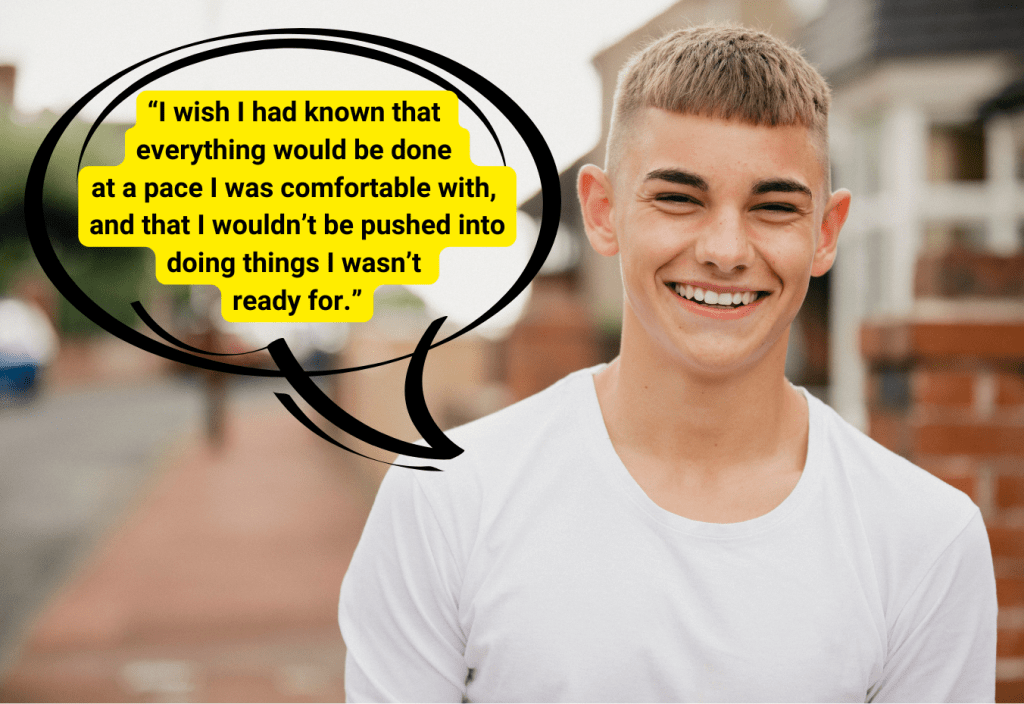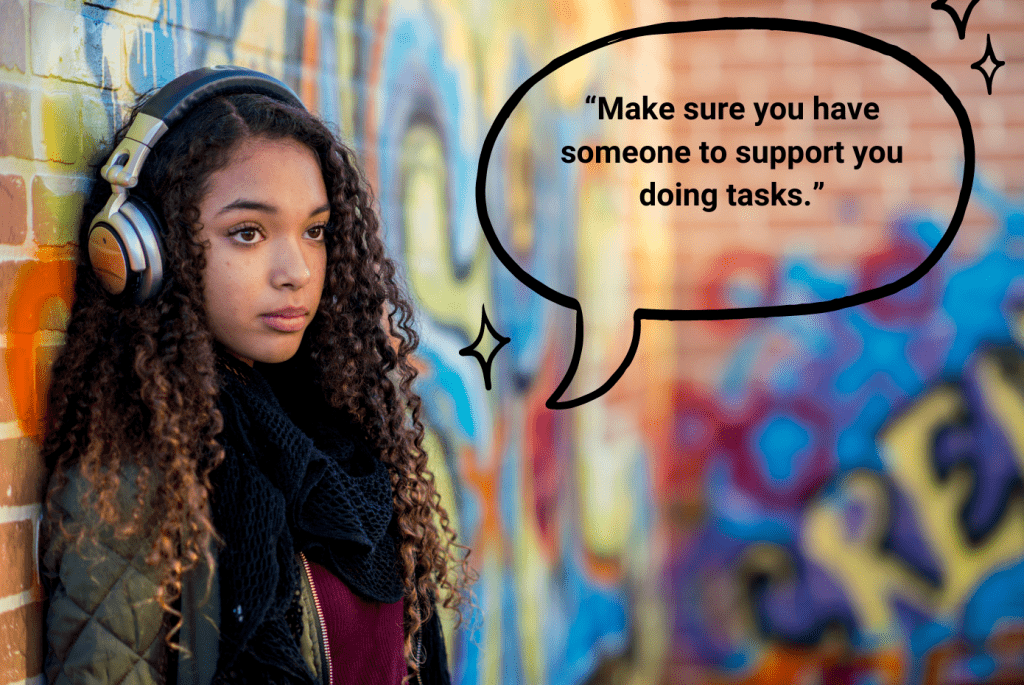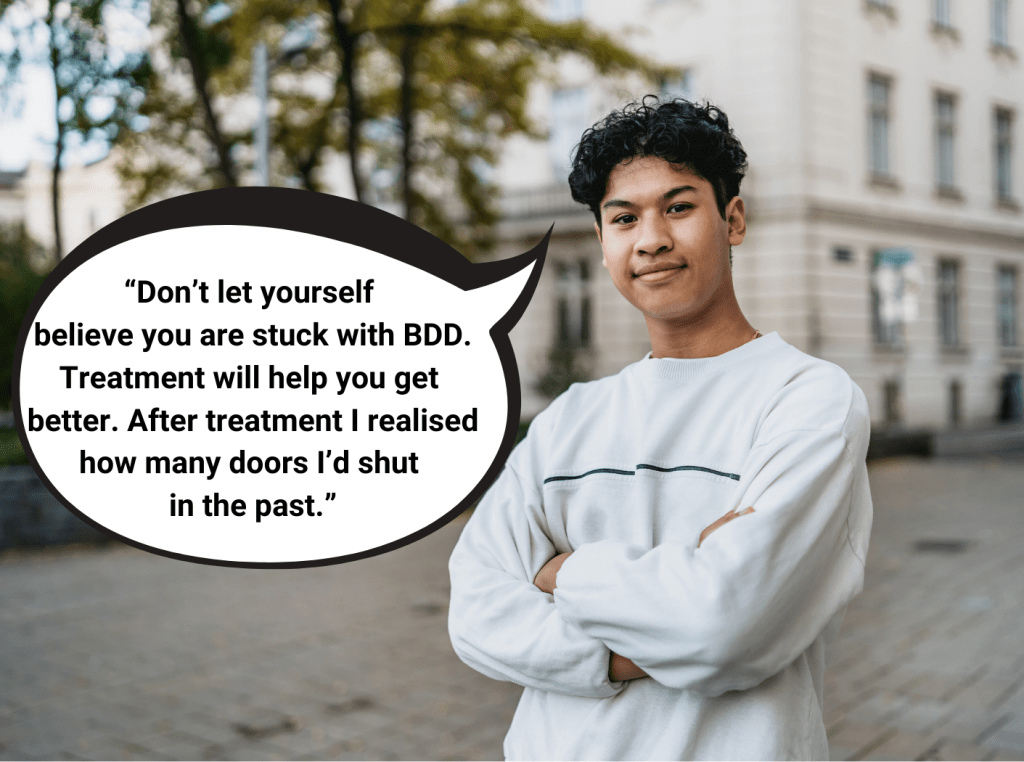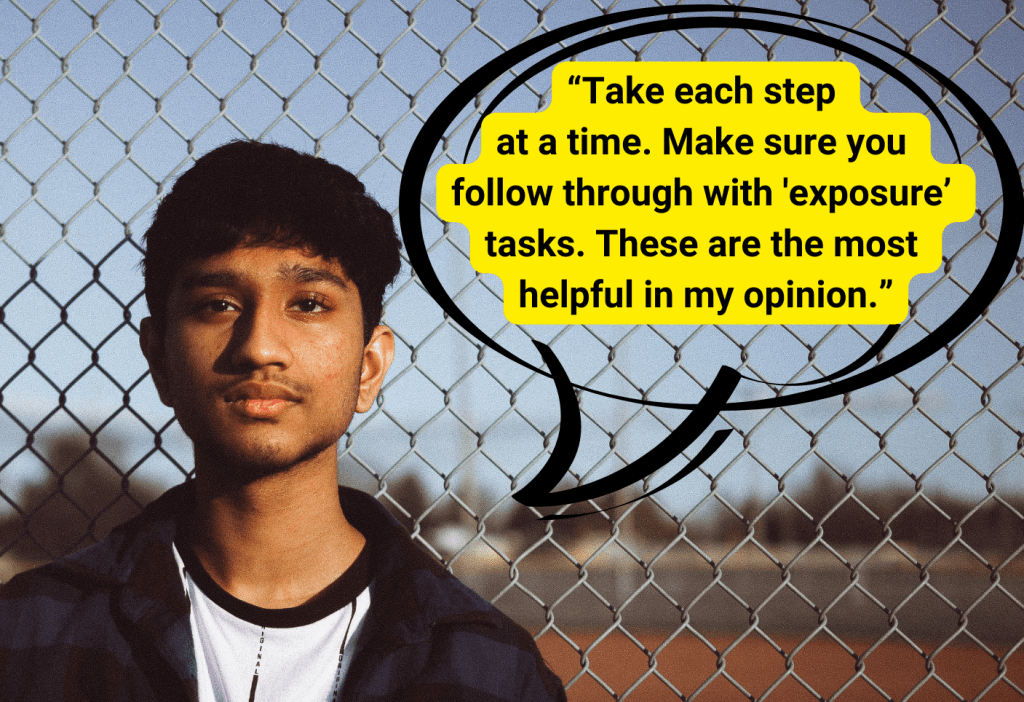Getting Treatment for BDD
If you feel that you are suffering from BDD, or have been diagnosed with BDD, the good news is that treatments are available.

The best evidence so far supports two possible treatment options, which can be delivered independently of each other or can be given together. One treatment is psychological, Cognitive Behaviour Therapy (CBT) and the other option is medication.
Anybody seeking psychological help for BDD should be offered Cognitive Behaviour Therapy (CBT) as this is the only psychological treatment which has been proven to work for BDD.

In the UK, CBT is the treatment recommended by the National Institute for Health and Care Excellence (NICE), which provides treatment guidelines based on the best available evidence. Based on the research so far, we know that there are a few components that should be included in a good course of CBT for BDD for it to be as effective as possible.
Key components of CBT for BDD

- Should meet with your therapist once a week for sessions of about 60 minutes each.
- You may need up to 20 sessions – this can vary.
- Therapist should check with you how much you want/need your family involved in sessions.
- You should be given homework tasks in-between each session to complete, including tasks to reduce BDD-related behaviours (see below)
You should complete the following topics in CBT:

- Learning about BDD, anxiety, and key psychological processes associated with this condition
- Understanding your own BDD, in particular the behaviours which you engage in and how these fuel worries about appearance and difficult emotions
- Practicing reducing your BDD-related behaviours, with the help of your therapist and maybe also your family and friends. This will involve physically carrying out tasks and challenges in sessions. It is important to note that this process is done gradually, in steps that feel manageable for you
Some additional/specialist CBT for BDD components may include:

- Practicing how to shift your focus of attention from your appearance to the world around you
- Learning how to use mirrors in a helpful and non-judgmental way
- Working directly with specific unhelpful thoughts
- Working through relevant, difficult experiences from your past such as appearance-related bullying
- Help with improving your self-esteem
Do I have BDD? Take the test
Our test, developed by specialists and healthcare professionals, can help you understand whether someone might have Body Dysmorphic Disorder.
Take the test